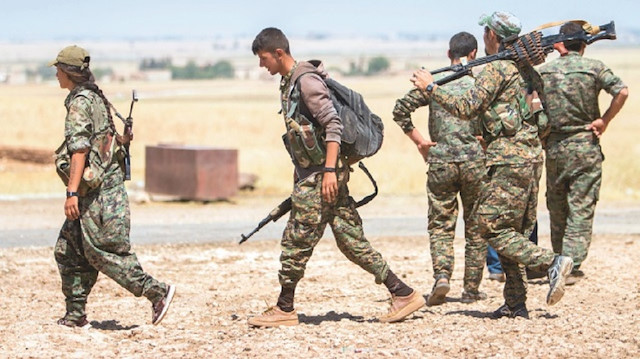
Kurdish Regional Government spokesman slams PKK terrorist group, hails relations with Turkey
Safin Dizayi, a spokesman for northern Iraq's Kurdish Regional Government (KRG), has described the PKK terrorist group’s continued presence in Iraq’s Sinjar district as “unacceptable”.
Speaking to Anadolu Agency on Monday, Dizayi spoke about the KRG’s relations with the federal government in Baghdad and the PKK’s ongoing presence in Sinjar, which is located in Iraq’s northern Nineveh province.
"The deployment of the Hashd al-Shaabi [a predominantly Shia fighting force affiliated with the Iraqi army] has allowed the PKK and its local affiliates to dominate the region," he said.
Asserting that PKK loyalists had prevented the region’s legitimate administration from entering Sinjar, Dizayi said that a chronic lack of public services, security challenges, and the presence in Sinjar of illegal groups had dissuaded displaced local resident from returning home.
“Sinjar must be stabilized with a view to allowing residents to return to the region,” he said. “The Baghdad government must take steps to ensure the departure of these groups from Sinjar.”
Dizayi added: “Sinjar’s legitimate administration must be allowed to return; otherwise, the district will fall into chaos.”
The KRG spokesman went on to call for the “normalization” of relations between Baghdad and Erbil, the KRG’s administrative capital.
"After last year’s political turbulence [between the KRG and the Iraqi government], there is now a more favorable atmosphere," he said.
Noting that certain quarters had raised objections to the KRG’s share of Iraq's 2019 draft budget, Dizayi pointed out that a KRG delegation had recently held talks with Iraqi officials to discuss the issue.
“Kurdish political parties now enjoy a notable presence in Iraq’s government and parliament,” he said.
“Relations are gradually normalizing again,” he added. “The KRG’s share in Iraq’s draft budget, along with other outstanding issues, are in the process of being settled."
On the resumption of oil exports from Kirkuk to Turkey’s Ceyhan Port, Dizayi said: "If exports had resumed on Jan. 1, we would have realized $6 billion in revenue, which could have been used to resolve a number of the country’s problems, especially in Basra.”
For the past several months, Iraq’s southern Basra province has seen sporadic public demonstrations to demand improved public utilities and more job opportunities.
According to Dizayi, relations between the KRG and Ankara remain friendly despite recent political turbulence in the region.
“Relations came under a bit of strain following last year’s incidents, but they remained intact,” he said.
He went on to note that the KRG’s ties with Turkey had seen “ups and downs” since they were first established in the early 1990s.
"Our current relations with Turkey are very good, but they could be even better,” Dizayi said, adding: “We are very pleased with the recent cooperation we’ve seen with Turkey in a range of fields.”






